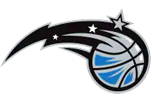Leaderboard
Popular Content
Showing content with the highest reputation on 05/18/2021 in all areas
-
The net effect is the same as removing them. Teams are assigned 1000 of the 1001 combinations. In any drawing that the unassigned combo comes up, the result is "thrown out", and a new drawing occurs. That is why the odds are 14% - 140 combinations out of 1000 possible "winning" combinations. The same is true for subsequent drawings after each draft position is assigned, so if the team that wins the 1st pick has a combination drawn later for the second, third, or fourth pick, that result is "thrown out". This means the odds of winning a pick actually change after each pick based on who won that pick. The odds we see quoted are "composites" based on multiple permutations, as the true odds can't be known until after each pick is made. The problem is when they make that board, there is no way to know whose odds went to 0% for each subsequent pick. It's also why the odds board has never made any sense because, unlike the lotto, each time you don't win, your odds to win the next pick do improve, as the ineligible number of combinations increase and the odds of a "re-draw" occurring increases. In essence, each time someone wins, their odds on winning subsequent picks is now 0%, because even if another of their combinations (or the same combination) is drawn, that result is now invalid, and thrown out. So, while the odds of one of your combinations being drawn is the same every time (140 out of 1001 possible combinations), the odds on that drawing resulting in a pick being assigned changes. So if we look at it from the perspective of actually winning a pick, each round (not every drawing) there is a 100% chance of a pick being assigned, either from the first draw or from subsequent re-draws. That means that if one teams odds go down to 0%, other teams odds have to increase. Example: Pick #1 goes to Detroit, who has 140 combinations. Now Houston's and Orlando's actual odds increase from 140 out of 1000 "winning" combinations, to 140 out of 860 (16.28%) to get the #2 pick, as there are now 141 combinations that are ineligible to win, and will result in a re-draw. On the other hand, if Charlotte wins the #1 pick with one of their 18 combinations, now Detroit, Houston, and Orlando all have the same odds for winning #2, and those odds are now 140 out of 982 (14.26%), as now there are only 19 ineligible combinations that will result in a re-draw.3 points
-
We're not just tanking though, we've tanked the last 15 games or whatever but I don't think that's the long term plan. We acquired 2 young guys with potential via trade. We have 2 young guys coming back from injury who are at minimum starter calibre players. We have young talented guys already on the roster. And we're likely getting 2 more guys this draft. We're going to try and develop all those guys. Plus we have a bunch of future picks we can use as assets. We're not just hoping for a miracle.1 point
-
Developing one player is to the detriment of the other members on the team. If some of the players who played the last few games with Cole are brought back next season, how is it helping their player development? It's called team basketball. In a situation such as the Magic, you would think that the coach would get the other players involved to see what he's got going forward--who to keep and who to let go--I know, g-league. Cole is not the only 'current' player (last few games) they plan to keep. I was excited about Cole his first few games with the Magic, but at this point with his ball hog mentality, I'm not sold on him. I know players are different but at this point it feels like an Elfrid Payton effect.1 point
-
My degree, and my job is in accounting - so stats are not my thing really. I had a professor once who used to refer to them as Stats, Stats, and Damn Stats. It took me a long time to really get my head around it. It really helps to think of it as rounds for each pick instead of drawings, since each round results in assigning picks 1 through 4, whereas each drawing may or may not. Statisticians will tell you that each drawing is relevant in calculating the odds, which is why the odds decline for the worst teams on the chart and it absolutely is when you are looking at "total" odds. The problem is not everyone understands exactly what the odds chart does show and what it doesn't. It shows your odds for being assigned a specific pick number when everything is factored in. For the first pick the math is easy, because it is straight out you have 140 combinations out of 1001 possible, but from then on, the math becomes crazy tough, because you are factoring in your odds based on every single permutation of who won the first pick, including if you won it. (hence some 0% being factored in) But, when you are looking at each pick individually, a drawing that does not result in an assignment is irrelevant; and if you didn't win the first pick, then your actual odds of winning the second increases, as do those of everyone who didn't win the first pick. Each subsequent pick, if you didn't win, you have better odds on the next. It's just a different way of looking at the problem.1 point
-
I agree and don't feel bad, it's really pretty confusing. That was an amazing breakdown by jmmagicfan!1 point
-
That trade becomes even more suspect when you know that Rob Hennigan came from the Thunder and then got a job back with the Thunder after he left us. And OKC basically turned those guys (Oladipo and Sabonis) into Paul George. Which they then turned into SGA and a bunch of draft picks. I hate Rob Hennigan (which is weird because for the first like 2 years I was fully on board with his moves but everything after Skiles became the coach - a decision I think a lot of us probably thought he didn't really make - was terrible)1 point
-
1 point
-
Those pre-draft odds are a little misleading and will change after each draft position is selected. In other words our odds for picks 2,3,4 will increase considerably if one of Det or Houston wins the first pick because the number combinations allotted to those teams (or whichever team wins the first pick) will no longer be in play when determining the next pick. That holds true for each pick down the line. Obviously if we get jumped by a team with very low odds it will have less impact on increasing the odds for us and the remaining teams for subsequent picks1 point
-
He was 10 for 25. When you don't have great talent on the floor it's all the more important to play good team basketball. I would really have liked for him to end the season showing how he could make the other players on the floor better, which is especially important for a point guard. He did the opposite. Hopefully it won't carry over to next season, but I believe it was a missed opportunity.1 point
-
im definitely going to save this to rub in your face if it doesn't happen... On the flip side i will flaunt this if you are right and praise your great feelings.1 point
-
I don't have a problem with Mobley, but the last time a Center was the finals MVP/best player on a championship team was 2005 - Tim Duncan. And he spent most of his career playing more PF. Before that you go back to Shaq in 2000-2002, but even those years were with an up-and-coming Kobe. YEAR PLAYER POS TEAM FG% PPG RPG APG BLKPG 2020 LeBron James F Los Angeles Lakers .493 25.3 7.8 10.2 0.5 2019 Kawhi Leonard F Toronto Raptors .496 26.6 7.3 3.3 0.4 2018 Kevin Durant F Golden State Warriors .516 26.4 6.8 5.4 1.8 2017 Kevin Durant F Golden State Warriors .537 25.1 8.3 4.8 1.6 2016 LeBron James F Cleveland Cavaliers .520 25.3 7.4 6.8 0.6 2015 Andre Iguodala F Golden State Warriors .466 7.8 3.3 3.0 0.3 2014 Kawhi Leonard F San Antonio Spurs .522 12.8 6.2 2.0 0.8 2013 LeBron James F Miami Heat .565 26.8 8.0 7.3 0.9 2012 LeBron James F Miami Heat .531 27.1 7.9 6.2 0.8 2011 Dirk Nowitzki F Dallas Mavericks .517 23.0 7.0 2.6 0.6 2010 Kobe Bryant SF Los Angeles Lakers .456 27.0 5.4 5.0 0.3 2009 Kobe Bryant SF Los Angeles Lakers .467 26.8 5.2 4.9 0.5 2008 Paul Pierce SF Boston Celtics .464 19.6 5.1 4.5 0.5 2007 Tony Parker G San Antonio Spurs .520 18.6 3.2 5.5 0.1 2006 Dwyane Wade G Miami Heat .495 27.2 5.7 6.7 0.8 2005 Tim Duncan C San Antonio Spurs .496 20.3 11.1 2.7 2.6 2004 Chauncey Billups PG Detroit Pistons .394 16.9 3.5 5.7 0.1 2003 Tim Duncan C San Antonio Spurs .513 23.3 12.9 3.9 2.9 2002 Shaquille O'Neal C Los Angeles Lakers .579 27.2 10.7 3.0 2.0 2001 Shaquille O'Neal C Los Angeles Lakers .572 28.7 12.7 3.7 2.8 2000 Shaquille O'Neal C Los Angeles Lakers .574 29.7 13.6 3.8 3.0 1999 Tim Duncan C San Antonio Spurs .495 21.7 11.4 2.4 2.5 Centers just aren't as important as they used to be. Yes, you have a couple of top teams with centers as key players; Gobert in Utah, Embiid in Philly, Jokic in Denver, and they are all doing it differently. Only Gobert might be classified as a "traditional", back-to-the-basket player. This has become the era of the wing player. I just don't think Mobley helps us that much, and if you pick him you probably need to move Bamba or Carter, neither of which will net you a top, young SF/SG type of player.1 point
-
This incorrectly assumes that the reason OKC didn't win a championship was because of tanking and not because they traded James Harden for pennies on the dollar to avoid the luxury tax, kept Scott Brooks as coach for far too long and lost a game 7 to the winningest regular season team of all time. Winning a championship is very hard. Only 1 team wins a championship every year so every year 29 teams had a strategy that didn't win a championship.1 point
-
The circle won’t be closed until you block him though. Close the circle.0 points


